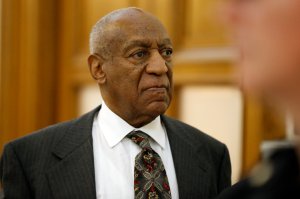Ten of the 12 jurors in Bill Cosby’s assault trial voted to convict the comedian on two counts of aggravated indecent assault, but the case was declared a mistrial because two people on the panel continued to hold out, a juror told ABC News.

Cosby faced three counts of aggravated indecent assault. The vote was 10 to 2 to convict him on charges that he digitally penetrated Andrea Constand in January 2004 without her consent, and 10 to 2 that he gave her drugs that substantially impaired her ability to resist, the juror told ABC Wednesday.
The vote was 11 to 1 to acquit Cosby on a charge that he digitally penetrated her while she was unconscious or unaware.
In criminal cases, verdicts must be unanimous. The judge declared a mistrial Saturday after jurors reported they were hopelessly deadlocked after almost a week of deliberations.
The juror spoke with ABC News on the condition of anonymity because jurors were told not to comment on the proceedings inside the jury room.
CNN has tried to reach most of the jurors, but has not gotten responses from them.
The jury room insight came the same day that the judge presiding over Cosby’s trial released the names of the 12 jurors and six alternates in his case.
After requests from several media outlets, including CNN, Montgomery County Judge Steven O’Neill decided to release the names, while keeping the jury deliberations confidential, according to a court document released Wednesday.
The document states that a disclosure of anything said or done during deliberations “would have a chilling effect upon future jurors in this case and their ability to deliberate freely.”
The court emphasized that jurors are not allowed to disclose the opinions and thoughts of their fellow jurors, as well as any arguments or comments made, or votes cast, by fellow jurors during deliberations.
The names were released to the public after the jurors were contacted by the court and given instructions.
Prosecutors say Cosby drugged and sexually assaulted Andrea Constand, the former director of operations for Temple University’s women’s basketball team, at his home near Philadelphia in January 2004. Cosby was charged with three counts of aggravated indecent assault.
The jurors for the trial were selected in Allegheny County, Pennsylvania, and taken to Montgomery County, Pennsylvania, where they were sequestered for the 12 days of trial and deliberations.
On June 17, the court declared a mistrial after a jury deadlock. Prosecutors said they will retry the case.
According to the post-trial instructions, the judge acknowledges the freedom of the press, stating “there is no law forbidding them to question discharged jurors,” and adding that a juror can decline to be interviewed at any time.
The document said the court had “significant concerns” over publication of the names during the trial, when attempts to contact jurors’ families and friends, who would likely have contacted the jurors, would have caused “consternation and distraction from their sworn duty.”
The prosecution filed a memorandum opposing the release of the names, saying it “could have a chilling effect on future jurors and could impair both parties’ right to a fair and impartial trial.” The defense team later joined the request to deny the release of names.
After balancing the rights of all parties, the court decided to release the names, the document said.






